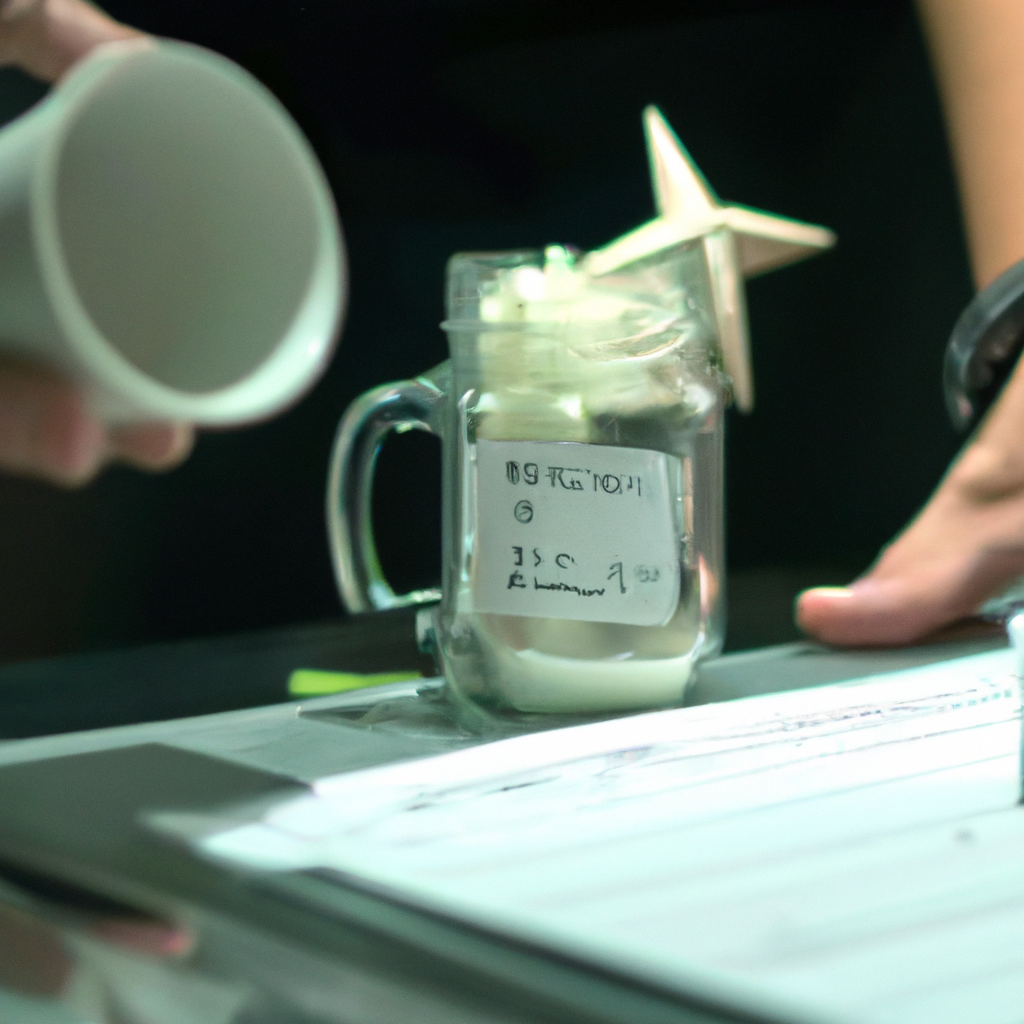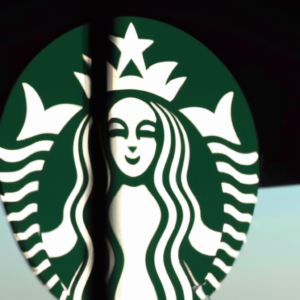“Start Your Starbucks Career with Fair and Competitive Pay!”
Introduction
Starbucks baristas are the face of the company, and their pay during training is an important factor in their overall job satisfaction. Starbucks has a comprehensive compensation and payment system for baristas-in-training that is designed to ensure that they are fairly compensated for their work. This article will provide an overview of the compensation and payment system for Starbucks baristas-in-training, including details on wages, benefits, and other forms of compensation. It will also discuss the importance of providing fair and equitable pay for baristas-in-training, and how Starbucks is working to ensure that all baristas are fairly compensated for their work.
How Much Do Starbucks Baristas Make During Training?
Starbucks baristas typically make minimum wage during their training period. Depending on the state, the minimum wage can range from $7.25 to $12.00 per hour. In addition, Starbucks offers a comprehensive benefits package to all of its employees, including baristas in training. This package includes health insurance, a 401(k) plan, and stock options.
What Benefits Do Starbucks Baristas Receive During Training?
Starbucks baristas receive a variety of benefits during their training period. These benefits are designed to ensure that baristas are well-prepared to provide excellent customer service and to ensure that they are comfortable in their new role.
The first benefit that baristas receive is a comprehensive training program. This program includes both classroom and hands-on training, which covers topics such as customer service, product knowledge, and safety. Additionally, baristas are given the opportunity to practice their skills in a simulated environment.
In addition to the training program, baristas also receive a competitive wage. Starbucks pays its baristas an hourly wage that is higher than the minimum wage in many states. This wage is also supplemented with tips, which can add up to a significant amount of money.
Finally, baristas receive a variety of other benefits during their training period. These benefits include discounts on Starbucks products, flexible scheduling, and access to health insurance. Additionally, baristas may be eligible for tuition reimbursement and other educational benefits.
Overall, Starbucks baristas receive a variety of benefits during their training period. These benefits are designed to ensure that baristas are well-prepared to provide excellent customer service and to ensure that they are comfortable in their new role.
What Are the Different Types of Pay Structures for Starbucks Baristas During Training?
Starbucks baristas during training typically receive one of three types of pay structures. The first is an hourly wage, which is the most common form of pay for baristas during training. This type of pay structure is based on the number of hours worked and is usually set at the minimum wage rate. The second type of pay structure is a salary, which is a fixed amount of money paid to the barista regardless of the number of hours worked. The third type of pay structure is a commission-based system, which pays the barista a percentage of the sales they generate. This type of pay structure is typically used for baristas who have more experience and are expected to generate higher sales.
How Does Starbucks Ensure Fair Pay for Baristas During Training?

Starbucks takes great care to ensure that baristas are paid fairly during their training period. The company has a comprehensive training program that is designed to ensure that baristas are well-prepared to serve customers and that they are paid for their time.
First, Starbucks pays baristas for their training time. This includes both classroom and on-the-job training. Baristas are paid for the time they spend in the classroom, as well as for the time they spend practicing their skills on the job. This ensures that baristas are compensated for the time they spend learning the skills necessary to be successful in their role.
Second, Starbucks provides a comprehensive training program that is designed to ensure that baristas are well-prepared to serve customers. The program includes classroom instruction, hands-on practice, and feedback from experienced baristas. This ensures that baristas are given the opportunity to learn the skills necessary to be successful in their role.
Finally, Starbucks provides a clear and consistent pay structure for baristas. The company has established a minimum wage for baristas, as well as a pay scale that is based on experience and performance. This ensures that baristas are paid fairly for their work and that they are not taken advantage of.
Overall, Starbucks takes great care to ensure that baristas are paid fairly during their training period. The company has a comprehensive training program that is designed to ensure that baristas are well-prepared to serve customers and that they are paid for their time. Additionally, Starbucks provides a clear and consistent pay structure for baristas, ensuring that they are paid fairly for their work.
What Are the Pros and Cons of Working as a Starbucks Barista During Training?
Working as a Starbucks Barista during training can be a rewarding experience, but it also has its drawbacks. This article will discuss the pros and cons of working as a Starbucks Barista during training.
Pros
One of the main advantages of working as a Starbucks Barista during training is the opportunity to learn the basics of the job. During training, baristas will learn how to make coffee drinks, use the register, and interact with customers. This knowledge can be invaluable when it comes to finding a job in the future.
Another benefit of working as a Starbucks Barista during training is the chance to gain experience in the hospitality industry. Working as a barista can help baristas develop customer service skills, which can be beneficial in any job.
Finally, working as a Starbucks Barista during training can be a great way to make some extra money. Baristas typically earn minimum wage, but tips can add up quickly.
Cons
One of the main drawbacks of working as a Starbucks Barista during training is the long hours. Baristas often work early mornings and late nights, which can be difficult for those with other commitments.
Another disadvantage of working as a Starbucks Barista during training is the lack of job security. Baristas are often hired on a temporary basis, and there is no guarantee of a permanent position.
Finally, working as a Starbucks Barista during training can be stressful. Baristas must be able to handle a high volume of customers and multitask in a fast-paced environment.
In conclusion, working as a Starbucks Barista during training can be a great way to gain experience and make some extra money. However, it is important to consider the long hours, lack of job security, and potential stress before taking on the role.
How Does Starbucks Ensure Baristas Receive Adequate Training During Their Employment?
Starbucks takes the training of its baristas very seriously. To ensure that baristas receive adequate training during their employment, Starbucks has implemented a comprehensive training program. This program includes both in-store and online training.
In-store training begins with a two-week orientation period. During this period, baristas learn the basics of the job, such as how to make drinks, how to use the register, and how to interact with customers. They also learn about the company’s values and mission.
After the orientation period, baristas receive ongoing training. This includes weekly meetings with their store manager to review their performance and discuss any areas of improvement. Baristas also receive additional training on new products and services, as well as customer service techniques.
In addition to in-store training, Starbucks also offers online training. This includes a variety of courses that baristas can take at their own pace. These courses cover topics such as customer service, product knowledge, and safety.
By providing both in-store and online training, Starbucks ensures that its baristas receive the training they need to be successful. This helps to ensure that baristas are knowledgeable and well-prepared to provide excellent customer service.
What Are the Different Types of Bonuses and Incentives for Starbucks Baristas During Training?
Starbucks baristas receive a variety of bonuses and incentives during their training period. These bonuses and incentives are designed to motivate and reward baristas for their hard work and dedication to the company.
One type of bonus and incentive for Starbucks baristas during training is a performance bonus. This bonus is awarded to baristas who demonstrate exceptional performance in their training. This bonus is typically based on the barista’s ability to learn quickly and accurately complete tasks.
Another type of bonus and incentive for Starbucks baristas during training is a referral bonus. This bonus is awarded to baristas who refer new employees to the company. This bonus is typically based on the number of referrals made by the barista.
The third type of bonus and incentive for Starbucks baristas during training is a completion bonus. This bonus is awarded to baristas who successfully complete their training program. This bonus is typically based on the barista’s ability to learn quickly and accurately complete tasks.
Finally, Starbucks baristas may also receive a bonus for achieving certain milestones during their training. These milestones may include completing a certain number of hours of training, passing a certain number of tests, or achieving a certain level of proficiency in a particular skill. This bonus is typically based on the barista’s ability to learn quickly and accurately complete tasks.
Overall, Starbucks baristas receive a variety of bonuses and incentives during their training period. These bonuses and incentives are designed to motivate and reward baristas for their hard work and dedication to the company.
How Does Starbucks Ensure Baristas Receive Fair Wages During Training?
Starbucks is committed to providing fair wages to its baristas, even during training. To ensure that baristas receive fair wages during training, Starbucks has implemented a number of policies and procedures.
First, Starbucks pays all baristas a minimum wage of at least $15 per hour, regardless of their experience level. This ensures that baristas are compensated fairly for their time and effort, even during training.
Second, Starbucks provides baristas with a comprehensive training program that is designed to help them become proficient in all aspects of the job. This includes providing baristas with the necessary tools and resources to help them learn the job quickly and efficiently.
Third, Starbucks provides baristas with a clear and concise job description that outlines their duties and responsibilities. This helps ensure that baristas understand their role and are compensated fairly for their work.
Finally, Starbucks provides baristas with a supportive work environment that encourages learning and growth. This includes providing baristas with feedback and guidance from experienced baristas and managers.
By implementing these policies and procedures, Starbucks is able to ensure that baristas receive fair wages during training. This helps ensure that baristas are able to learn the job quickly and efficiently, while also being compensated fairly for their time and effort.
What Are the Different Types of Scheduling Options for Starbucks Baristas During Training?
Starbucks baristas have several scheduling options available to them during training. These options include:
1. Full-time: This option allows baristas to work full-time hours during their training period. This is the most common option for baristas who are new to the company and need to learn the ropes quickly.
2. Part-time: This option allows baristas to work part-time hours during their training period. This is a great option for baristas who are already familiar with the company and just need to brush up on their skills.
3. Flexible: This option allows baristas to work flexible hours during their training period. This is a great option for baristas who have other commitments outside of work and need to be able to adjust their schedule accordingly.
4. On-call: This option allows baristas to work on-call hours during their training period. This is a great option for baristas who are looking for a more flexible schedule and don’t mind being called in to work at short notice.
No matter which option baristas choose, they will receive the same quality training and support from Starbucks. This ensures that all baristas are well-prepared to serve customers and provide the best possible experience.
How Does Starbucks Ensure Baristas Receive Adequate Breaks During Training?
Starbucks takes the well-being of its baristas seriously and has implemented a number of measures to ensure that they receive adequate breaks during training. All baristas are given a minimum of two 15-minute breaks for every four hours of training. These breaks are mandatory and must be taken away from the training area. During these breaks, baristas are encouraged to take a walk, get some fresh air, or grab a snack.
In addition, Starbucks has implemented a “buddy system” for baristas in training. This system pairs two baristas together and allows them to take breaks together. This ensures that baristas are not left alone during their breaks and can provide support and encouragement to one another.
Finally, Starbucks provides a dedicated break room for baristas in training. This room is equipped with comfortable seating, snacks, and beverages. It is a place where baristas can relax and recharge during their breaks.
Overall, Starbucks takes the well-being of its baristas seriously and has implemented a number of measures to ensure that they receive adequate breaks during training.
Q&A
1. How much do Starbucks Baristas-in-Training get paid?
Starbucks Baristas-in-Training typically receive minimum wage or higher, depending on the state or local laws.
2. Are there any additional benefits for Starbucks Baristas-in-Training?
Yes, Starbucks Baristas-in-Training may be eligible for benefits such as health insurance, paid time off, and discounts on Starbucks products.
3. How long does the training period last?
The training period typically lasts between two and four weeks.
4. Is there a probationary period after the training period?
Yes, there is typically a probationary period of up to 90 days after the training period.
5. Are there any bonuses or incentives for Starbucks Baristas-in-Training?
Yes, Starbucks Baristas-in-Training may be eligible for bonuses or incentives based on performance.
6. Are there any additional costs associated with the training period?
No, there are no additional costs associated with the training period.
7. Are there any additional requirements for Starbucks Baristas-in-Training?
Yes, Starbucks Baristas-in-Training must complete a background check and drug test prior to beginning their training.
8. Are there any additional qualifications for Starbucks Baristas-in-Training?
Yes, Starbucks Baristas-in-Training must be at least 18 years of age and have a high school diploma or equivalent.
9. Are there any additional benefits for Starbucks Baristas-in-Training after the training period?
Yes, Starbucks Baristas-in-Training may be eligible for additional benefits such as tuition reimbursement and stock options.
10. Are there any additional opportunities for Starbucks Baristas-in-Training after the training period?
Yes, Starbucks Baristas-in-Training may be eligible for additional opportunities such as promotions and career development.
Conclusion
Overall, Starbucks Baristas-in-Training are compensated fairly for their work. They are paid an hourly wage, receive tips, and are eligible for benefits. Additionally, they are provided with free coffee and food while on the job. This combination of wages, tips, and benefits makes Starbucks Baristas-in-Training a competitive option for those looking to enter the coffee industry. With the right training and dedication, Starbucks Baristas-in-Training can become successful baristas and enjoy a rewarding career.


